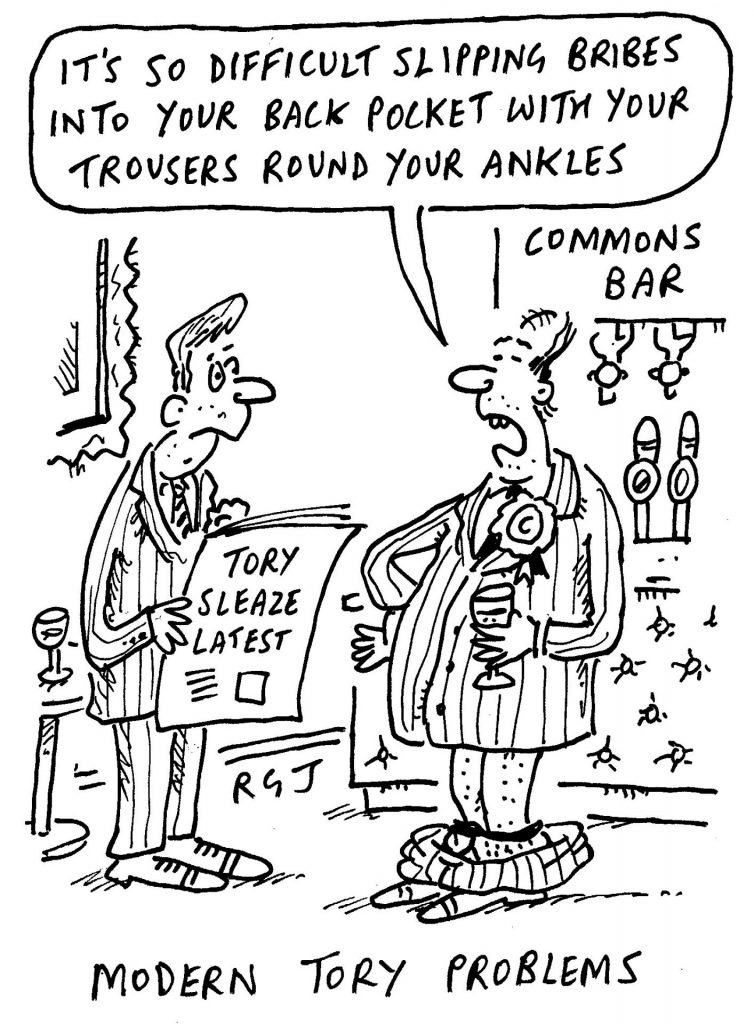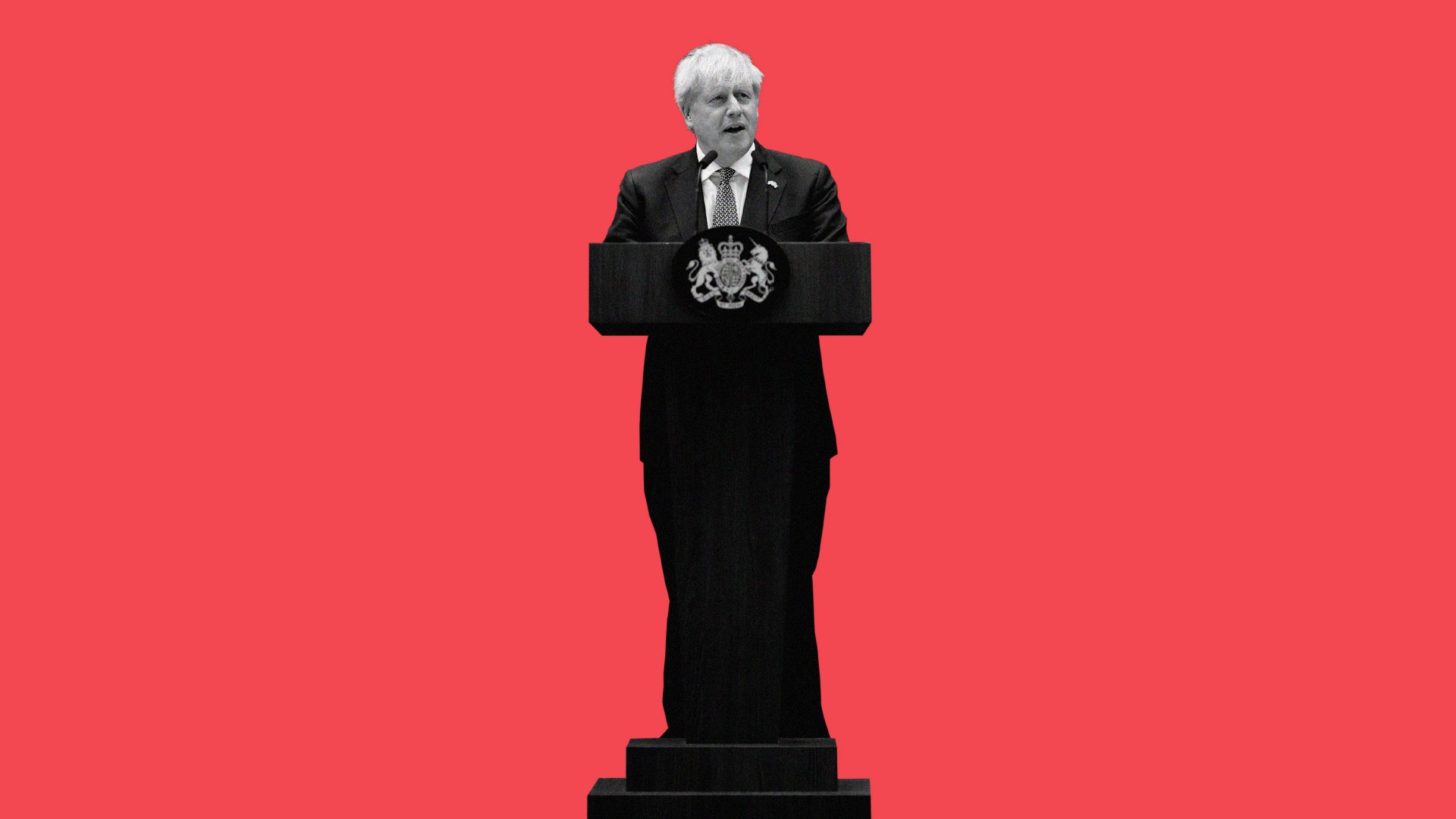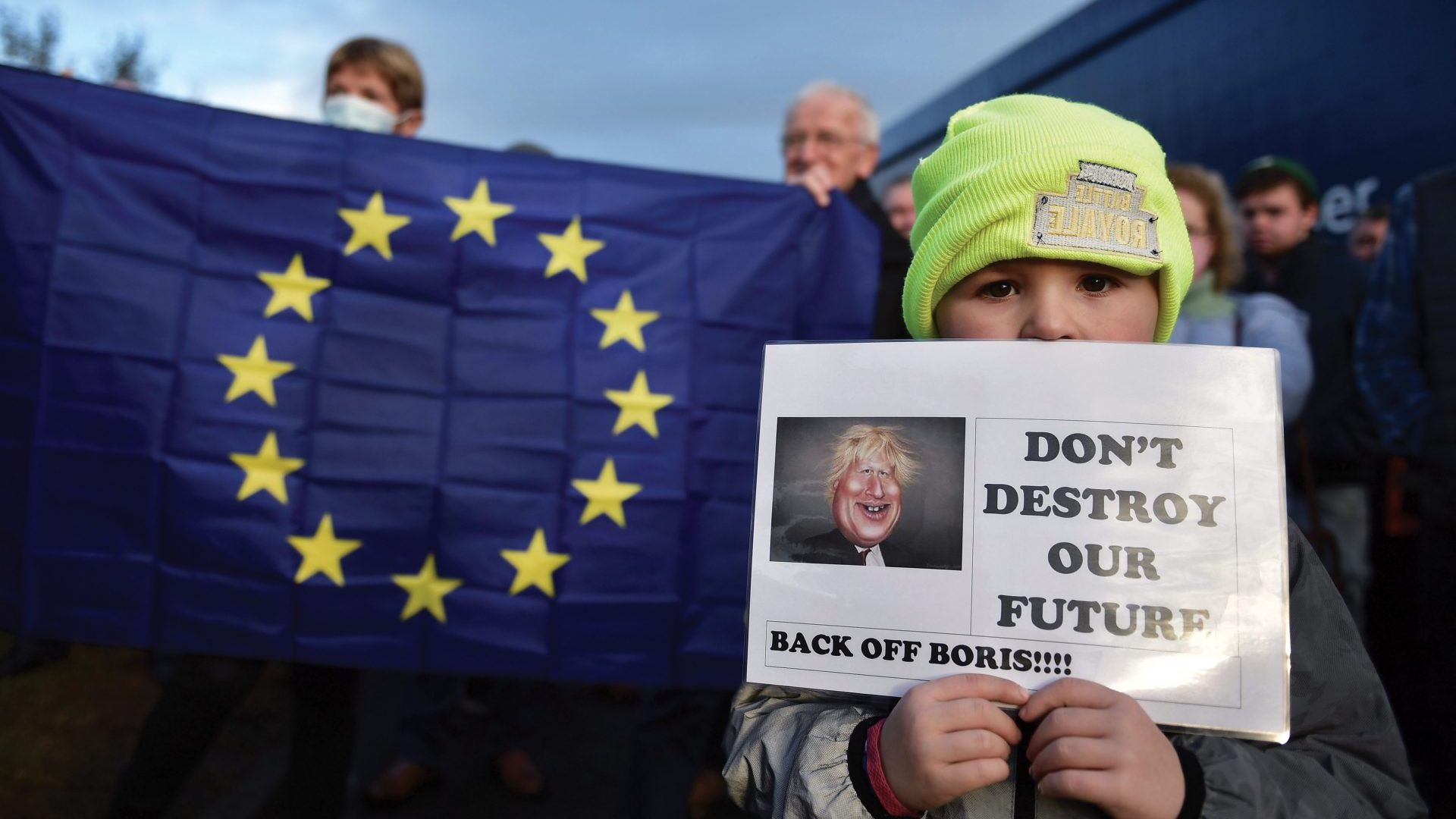For the rest of my days, I will resent being unable to share in the widespread euphoria that greeted Tony Blair’s first election win in May 1997. I now have a fresh resentment to add to it – that when the moment of Boris Johnson’s demise finally came, I failed in that too to feel any of the joy that immediately exploded across social media.
The reasons differ. In 1997, I was exhausted after months of flat-out campaigning, anxious about starting a new job running government communications a few hours after TB declared “a new dawn” and, looking back at my diaries, probably in a state of mild depression.
When the news came through last week that Johnson was leaving, any pleasure I felt was dwarfed by an overwhelming sense of disgust that he had ever got there in the first place, fuelled by the fact he could not bring himself to utter the word “resign”, and all he said “sorry” for was having to leave a job he should never have had.
As the New European published a reminder of the many front pages we have run, drawing attention to his multiple character and political defects, I recalled the column I wrote during the Tory leadership election of 2019, pleading with Tory MPs and members not to choose Johnson. Anyone who knew him or worked with him knew him to be a liar.
Anyone who had had personal dealings with him knew that he was unreliable and untrustworthy. Anyone who had followed his career as journalist, MP, mayor or minister, knew that he was essentially unserious, lazy, indifferent both to the detail of policy and its consequences. To Johnson, politics, like journalism, was a game in the which the rules were whatever he wanted them to be, and the only goal was his own advancement.
Everyone, including those now professing surprise that his premiership has ended in chaos and calamity, knew all of this. The MPs who voted for him knew it. The ministers who have sat like nodding dogs at the cabinet table, laughing at his jokes, obediently spouting whatever lies and excuses they were told to as he lurched from scandal to scandal, cover-up to cover-up, they knew it too. But they turned a blind eye. Because when it came to the game, they considered him to be a winner.
Much of the press also ignored truths they knew to be true. Of late, the Mail, the Express, the Sun and the Telegraph have operated more like an extension of the Johnson press office than as real newspapers. They are an important factor in the political malaise of our times, which under Johnson has made the UK a global joke.
My pleas to Tories having been ignored, Johnson having been installed, I then took to writing and broadcasting endlessly about the so-called Nolan Principles on standards of conduct in public life, brought in by former prime minister Sir John Major in the mid 90s after a spate of scandals. I took to reciting the seven HOOSIAL principles on TV and radio any time I could and predicting that ultimately Johnson’s inability to abide by them would eventually be his downfall. Honesty. Openness. Objectivity. Selflessness. Integrity. Accountability. Leadership. He fails on all seven.
In the end he did fall on account of serial dishonesty about what he knew before appointing a serial sex pest to an important post in government. But he had survived far bigger scandals before. It was not some sudden discovery of a moral compass that brought about the change of heart among ministers and MPs. It was that they suddenly realised Johnson was not a winner any more. He was a loser. If he stayed he risked losing power for his party, and that is what they care about most.
He will go down in history as the most dishonest, the most corrupt, the most incompetent, the most disgraced prime minister of all time, the one who has wrought the most damage on our parliament, the rule of law, our media, including the BBC, on our diplomacy and our strength in the world, and on the peace process in Northern Ireland.
Yet long after he is forgotten the chances are the most important part of his legacy – Brexit – will still be with us. That Johnson now stands for all to see as a liar and a crook, who used the same techniques of lies and crookery to win the referendum six years ago, appears not to have shaken the view across much of the political landscape that the issue cannot be revisited.
That is the real tragedy and the reason why I felt unable to celebrate his departure. For the irony is that the least serious and least substantial occupant Downing Street has ever had is responsible for perhaps the most serious and significant change to our country since the war. For that he, and all who enabled him, should never be forgiven.

The promises Johnson has made to dole out knighthoods and peerages in resignation honours doubtless runs into the hundreds. The Palace and the Cabinet Office should make clear that he is to be allowed none. This would be a blow to non-Lord Dacre, whose role as the highest-paid press officer in No 10 history has largely been about securing elevation.
It is not however the first time that the Great Putrescence has been thwarted. Back late last century, his name was down for a knighthood from the committee making recommendations for honours in the media sector. At the meeting to review the whole list, I made an assumption that Tony Blair would not want serving journalists to be honoured, as this would risk seeming corrupt, and Dacre’s name was deleted from the list. This, confirmed later by the PM, became a principle for the entire period we were in office. A very good one, I might add.
Since the days when my job was to seek to bring down John Major, and help Tony Blair replace him, I have developed a deep respect for the former prime minister. He intervenes rarely in public debate, but when he does, it is usually with devastating effect. In writing that Johnson should be replaced by a caretaker prime minister pending the election of a new Tory leader, he was essentially saying that Johnson could not be trusted a day longer, with state secrets, or with government money and machinery. He is absolutely right.
To see Johnson appointing idiotic nonentities like Peter Bonehead to a ministerial position, or the ill-named James Cleverly as our third education secretary in a week, was to see a script unfold that was beyond anything Armando Iannucci would have considered suitable for The Thick of It.
Also, though I have considerable time for Johnny Mercer’s fight for veterans, what earthly right did Johnson, a lame duck, have to make a major reorganisation of government by creating a new secretary of state’s position, without any regard for role, powers, budget or civil service support? To the very end, he is a creature of gimmick. I was disappointed that Mercer allowed himself to be played. It doesn’t stop me saying that his cameo in the upcoming Make Me Prime Minister series, as we watch our contestants in a crisis simulation, is one of my highlights. He swears a lot more than I do! I just wish he had told Johnson to fuck off when he got the call.
Talking of highlights… highlight of the week Number 2 was the message from Svana Gisla, the genius Icelandic producer of the sensational ABBA Voyage concerts, that Björn and Benny had been watching my TV rants against Johnson, and were thoroughly enjoying them. And highlight Number 1 was the message that my singing of Thank You for the Music in German, on our chart-topping Rest Is Politics podcast, was played to the ABBA team meeting the following day. Love ABBA, love life…




